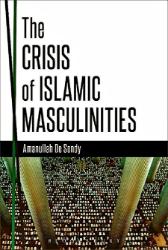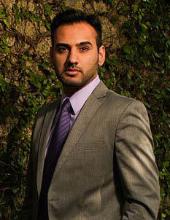Rigid notions of masculinity are causing crisis in the global Islamic community. These are articulated from the Qur’an, its commentary, historical precedents and societal, religious and familial obligations. Some Muslims who don't agree with narrow constructs of manliness feel forced to consider themselves secular and therefore outside the religious community. In order to evaluate whether there really is only one valid, ideal Islamic masculinity, The Crisis of Islamic Masculinities explores key figures of the Qur’an and Indian-Pakistani Islamic history, and exposes the precariousness of tight constraints on Islamic manhood. Amanullah De Sondy argues that the constrainers of masculinity have used God and women to think with and to dominate through and that rigid gender roles are the product of a misguided enterprise.
“This book opens the way to rethinking what it means to be a man in the Islamic tradition, showing the intricate ways in which constructions of femininity and masculinity are intertwined. It is a must-read for those wishing to understand the Islamists' obsession with sexuality, their rejection of gender equality, and their invocation of religious dogma as the basis for gender rights.”
— Ziba Mir-Hosseini, Centre for Islamic and Middle Eastern Law,
School of Oriental and African Studies (SOAS), University of London
Amanullah De Sondy connects the study of religion to the key themes of gender, ethnicity, race, and pluralism. He has taught Islamic Studies at the University of Glasgow, where he earned his PhD; the University of Strathclyde; and the University of Stirling in Scotland. In 2009, he moved to the USA, where he taught religious studies at Ithaca College before joining the University of Miami in 2010.







